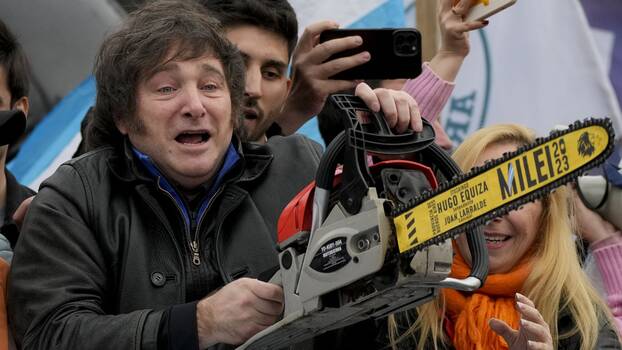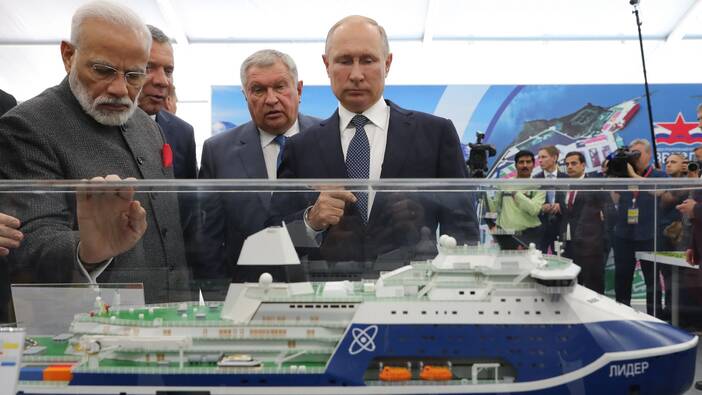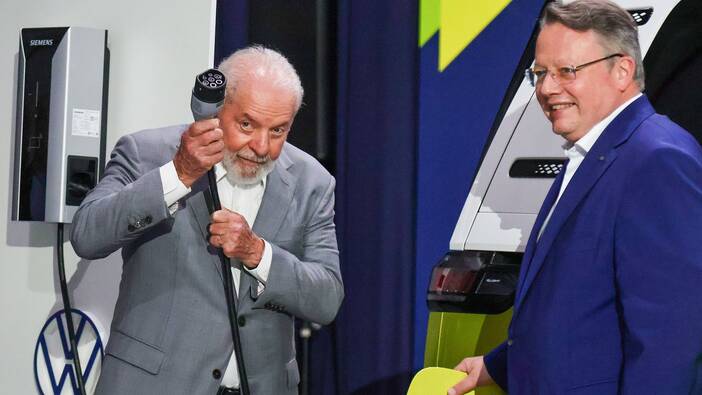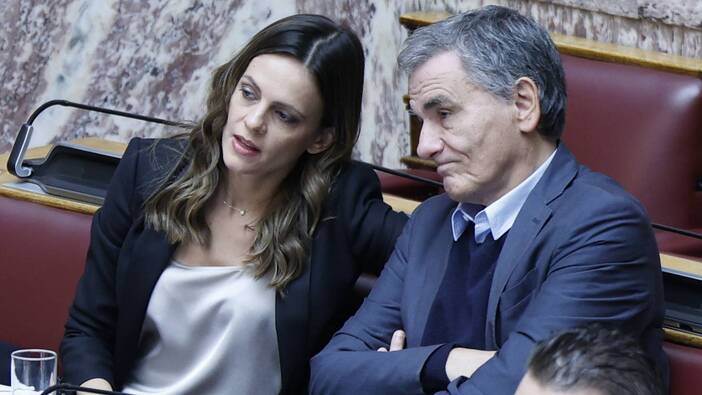
It is a big promise. Midway through March this year, Javier Milei stated that Argentina has the opportunity to reach Germany’s economic strength and prosperity — Parliament and the courts just needed to accept his proposals.
However, the drastic effects of the shock therapy ordered for the country by the new Argentinian president is already literally inscribed on the faces of many people. Unmitigated despair is spreading because they no longer know how they will make it through the month. The shock waves hit the lower classes particularly hard, but also affect the middle class, forcing them to tap their emergency funds.
Torge Löding directs the Rosa Luxemburg Foundation’s Buenos Aires Office.
The right-wing Milei — an ultra-libertarian disciple of Friedrich Hayek — blames this development on his predecessor, the unsuccessful Peronist Alberto Fernandéz. But Milei severely aggravated the crisis by devaluing the country’s currency, pesos, immediately after taking office, leading to a depreciation in comparison to the US-dollar ever since. Other immediate measures taken by Milei have accelerated the economic downturn, first and foremost removing price controls on food staples and abruptly scrapping subsidies, which led to the explosion of transportation, gas, electricity and water costs. Milei even cut aid for NGO-run soup kitchens for those with the greatest needs. In other words, the self-described “chainsaw man” has already done plenty of damage during his first 100 days in office.
Milei’s Collision Course
Many observers are comparing Argentina’s current crisis with the one in the late-90s. Beyond the parallels, there are also noteworthy differences. Back then, the working class had only begun to recover from their organizations being completely demolished under the brutal military dictatorship (1976-83). The trade unions were unable to mount much resistance to the implementation of the neoliberal agenda — until societal rebellion erupted in 2001. Although Argentina is not yet at that point, there is already resistance stirring in response to the economic misery. Everyday life in Argentina is marked by strikes and protests — despite the tightening of security protocols aimed at making protest more difficult — and more clashes are expected in the coming weeks because the president provoking confrontations with his collision course.
Milei characterizes his destruction of the social state and democratic institutions as a ‘fight against caste’. This framing not only receives approval in Argentina, it is praised in alt-right networks internationally.
Most of Milei’s strength derives from his convincing electoral victory — after all, he won the run-off over the candidate from the Peronist camp, the former Minister of Economy Sergio Massa, by a nearly twelve-point margin. This means he received support for the brutal structural reform of Argentinian capitalism from a radicalized electorate, not just members of his party Freedom Advances (AL). Hernán Ouviña, social scientist at the Universidad de Buenos Aires, claims business interests regard the structural reform as a “historic necessity” because the societal protests in Argentina in 2001 acted like “a brake on additional privatization as were carried out almost everywhere else in Latin America.” Argentina is actually one of the few Latin American countries with public health care and educational systems and was somewhat successful in returning pension funds back into public administration. Ouviña argues that societal forces prevented even Mauricio Macri’s right-wing government (2015-2019) from rolling back these achievements.
Milei claims Macri’s “gradualism” is now obsolete — and the former president from the conservative Republican Proposition (PRO) agrees with him. Macri had already moved closer to Milei during the election campaign and is considered the bridge builder between the two parties, whose alliance made Milei’s victory in November 2023 possible in the first place. Despite widespread speculation about the president’s mental state — he easily flies into a rage and missed his deceased dog so much that he had it cloned — Ouviña is convinced that “this is not just a madman’s project, it is the systematic implementation of a plan that is seen as necessary from a business perspective.”
Milei characterizes his destruction of the social state and democratic institutions as a “fight against caste.” This framing not only receives approval in Argentina, it is praised in alt-right networks internationally. Milei is closely associated with the Bolsonaro camp and is a fan of Donald Trump. In his speech held on 17 January at the World Economic Forum in Davos, he hit on the international right’s most important talking points, railing against climate policy and feminism. Milei said social democrats and Christian democrats are all “collectivists” — the same as fascists.
And yet, the president is far from being able to simply push through his agenda. He does not have a majority in either chamber of parliament. His party only has a few representatives there and not a single governor or mayor.
He only receives power from the alliance with the right-wing bourgeois camp, but even this cooperation is strongly limited, as demonstrated by the failure of his “omnibus bill” in parliament. It would have granted more powers to the president, enabling him to govern without annoying negotiations in parliament. In addition, it would have also more clearly detailed the implementation of privatization and restructuring measures that Milei had already ordered by decree. Everything pointed towards a resounding success for Milei when the omnibus bill was passed by parliament with a clear majority on 7 February. But this was immediately followed by a bitter defeat: they were unable to achieve a majority for the individual measures and the government was forced to abandon the legislative package.
The fighting between the president and the governors who had opposed the omnibus bill escalated following the defeat for Milei. He felt betrayed and so he began to stop the flow of money to the provinces — regardless of their government’s respective political leaning. Now they do not have the means to do things like pay state employees or finance the public transport system. Since then, the tense relationship between the governors and the president has vacillated between open rebellion and a willingness to negotiate.
The Crisis of Peronism
The parliamentary opposition can be split into two groups. Of the 257 members of parliament, the “hard“ opposition currently has 104 members, mostly the bloc of 99 Peronist MPs from Union for the Homeland (UP), whose political orientation reaches from the left to the centre-right. They are joined by five representatives of the Trotskyist Workers’ Left Front-Unity (FIT-U). The other section of the opposition, encompassing 73 MPs including liberals and a range of smaller parties, are “open for negotiations”.
In his first 100 days in office, Milei has already demonstrated how little he is concerned with what he claimed a couple days before.
Noteably, the most well-known faces of Peronism have been staying above the fray for now. The party chairman, ex-president Alberto Fernandéz, has been in Europe for a while, runner-up Massa maintains a moderate stance, ex-president Cristina Fernandéz recently released an open letter and signalled willingness to negotiate on reforming labour law. Only on the regional level do the Peronist governors — most prominently those from Rioja and Buenos Aires — seem keen to distinguish themselves as committed opponents of Milei. However, even their positions cannot obscure the severe crisis Peronism has fallen into following their election defeat.
Although there is little confidence being communicated by Peronist dignitaries, the trade unions are mobilizing resistance. The first general strike already happened on 25 January — first and foremost by the public sector with its 3.5 million workers, who were the focus on Milei’s attacks. The trade unions in key industries — mostly concentrated in the industrial belt around Buenos Aires or Cordoba — with 6.5 million workers in total are also issuing calls to protest.
The is also a some resistance stirring in base of the Peronist party where Juan Grabois, speaker of the Union of Precarious Workers (UTEP), has become a beacon of hope for “Peronism from below”. UTEP organizes workers in the informal sector, which makes up nearly half of the approximately 20 million workers in Argentina.
Grabois is also considered a beacon of hope because Milei was able to gain votes precisely among the precarious workers by connecting with the abundant levels of dissatisfaction there. His criticism of the “system” and the “caste” found fertile ground, just like his claims of upturn by dollarizing the economy. Many people even believed Milei’s promise that the privileged part of the population would pay the price for the crisis.
However, in his first 100 days in office, Milei has already demonstrated how little he is concerned with what he claimed a couple days before. He has allied himself with exactly those parts of the “caste” that he chastised during the campaign. And not that he is in office, he is passing on the costs of the crisis to the wider population, not the privileged.
Milei enjoys posing as an ultra-libertarian who wants to fight state overreach. But his restructuring plans require a strong as well as a weak state: strong in selective repression and militarization, weak in redistribution and social security. It remains to be seen whether he will be able to push through his project of restructuring the state. The many protests and strikes have demonstrated there is, in fact, widespread resistance. However, the societal and parliamentary opposition still does not have shared agenda capable of inspiring wide swaths of the population and mobilizing them to fight the president. In light of the support the president enjoys in the business sector, this is will be necessary if Milei is to be defeated.
This article first appeared in nd.aktuell in cooperation with the Rosa Luxemburg Foundation. Translated by Bradley Schmidt for Gegensatz Translation Collective.


